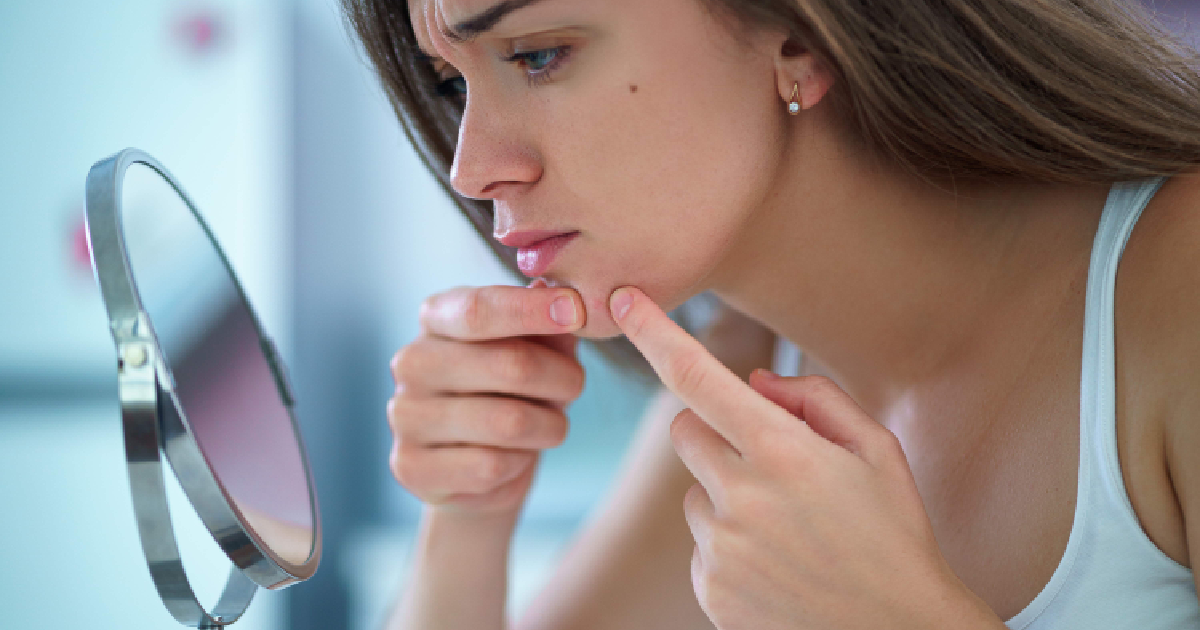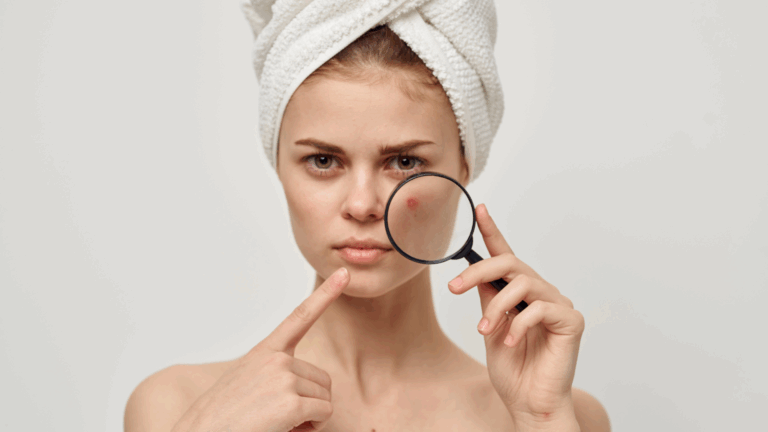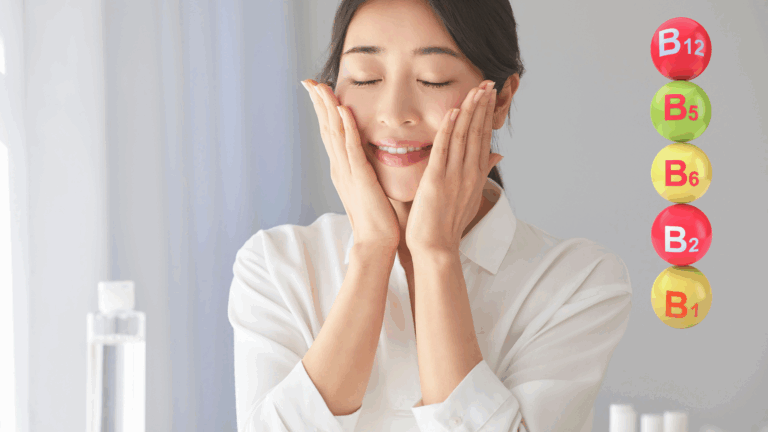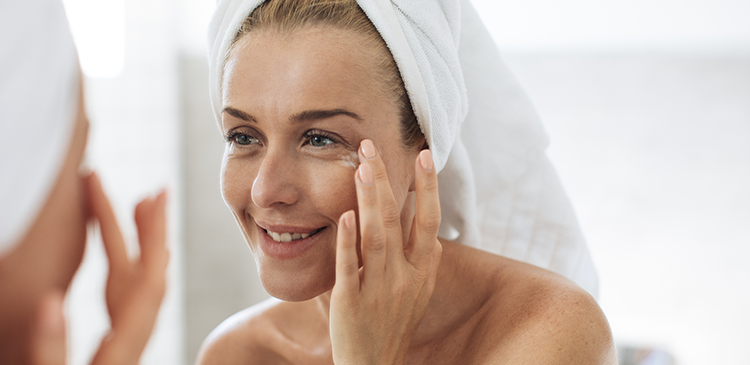Summer Acne: Why It Gets Worse & How to Prevent Breakouts in Hot Weather
What Causes Summer Acne?
Summer is the season of sunshine, vacations, and outdoor fun — but it’s also the time when many people notice more breakouts. Heat and humidity increase sweat and oil production, and that extra moisture on the skin makes it easier for pores to clog. The result? Pimples, bumps, and rough texture that seem to appear overnight.
Sunscreen, makeup, and heavy skincare products can also trap debris on the skin. While sunscreen is essential, certain mineral or oily formulas may cling stubbornly to the surface if they aren’t washed off properly. Over time, that residue can lead to clogged pores and flare-ups.
The sun itself can be deceiving. At first, UV rays dry out blemishes and reduce redness, making acne look better. But with repeated exposure, the skin thickens to protect itself. This traps oil and bacteria beneath the surface, which often leads to bigger breakouts later in the season.
And acne doesn’t stop at the face. Summer breakouts are common on the back, chest, and shoulders, especially when sweat mixes with tight or synthetic clothing.
How to Prevent Summer Breakouts
Keeping skin clear in hot weather starts with the basics. Cleansing is key — washing your face 2–3 times a day, especially after sweating, helps remove sweat, oil, and sunscreen.
Switch to oil-free and lightweight moisturizers or sunscreens. Look for non-comedogenic formulas that protect without clogging pores. When outdoors, reapply sunscreen often, but make sure you remove it completely at the end of the day.
Lifestyle habits also make a difference. Wash workout clothes, hats, and towels regularly since bacteria and oils can transfer back onto your skin. Stay hydrated and add skin-friendly foods like salmon, walnuts, and leafy greens to your diet. Reducing sugar can also help limit oil production.
Best Ingredients for Summer Acne Treatment
Certain active ingredients work especially well for summer acne. Salicylic acid penetrates inside pores to clear out dead skin and excess oil. Benzoyl peroxide targets acne-causing bacteria, reducing inflammation and active breakouts.
Sulfur is another summer-friendly option since it absorbs oil and soothes irritation. Niacinamide and green tea are excellent calming ingredients that reduce redness and keep skin balanced.
For a gentler approach, natural remedies such as aloe vera, zinc, and tea tree oil can provide antibacterial and anti-inflammatory benefits without harsh side effects.
Summer Skincare Routine for Clear Skin
A consistent routine makes the biggest difference during summer. In the morning, start with a gentle cleanser, followed by a treatment serum. Add a lightweight moisturizer and finish with SPF 30+ sunscreen.
At night, focus on removing all sunscreen and sweat. Double cleansing is especially effective if you wear makeup or mineral SPF. Follow with an acne treatment product and a light, hydrating lotion to keep your skin balanced.
Weekly extras like a clay or sulfur mask can help absorb excess oil, while gentle exfoliation prevents buildup and improves skin texture.
When to See a Dermatologist
Sometimes summer acne needs more than just an over-the-counter routine. If your breakouts are painful, cystic, or not improving after a few weeks of consistent care, it’s worth consulting a dermatologist.
Early treatment can also prevent scarring, especially if you’re dealing with deep or inflamed acne. Prescription options may help when topical skincare isn’t enough.
How Metrin Can Help
Many acne products are harsh and strip away the skin barrier, which can actually trigger more oil production. Metrin takes a different approach. The Metrin Skincare System is designed to gently cleanse, condition, and restore skin without irritation.
- Double Cleansing Duo (Steps 1 & 2) removes sunscreen, sweat, and excess oil while keeping skin balanced.
- Vita Conditioners (Steps 3 & 5) restore hydration and strengthen the skin barrier after sun and heat exposure.
- Accelerated Performance System (APS) smooths rough texture and clears stubborn bumps left behind after summer.
By treating both pore congestion and barrier repair, Metrin helps you reset your skin after summer and maintain long-term clarity.
Ready to restore your glow?
- Take Our Skin Consultation Questionnaire
Discover your skin’s needs and get tailored guidance.💌 Take the FREE Skin Care Questionnaire and we’ll help you get started. - Start with the Metrin Skincare System for Her
Our complete 5-step system is designed for long-term results, not short-lived “glow-ups.”👉 Shop the Metrin Skincare System for Her
Frequently Asked Questions
What climate is worst for acne?
Hot, humid climates are the most challenging for acne-prone skin. Sweat and oil production increase, and moisture in the air prevents sweat from evaporating, which can trap bacteria in pores.
How do I stop breaking out in hot weather?
Wash your face gently after sweating, use lightweight non-comedogenic sunscreen, and avoid reusing sweaty towels or hats. Staying hydrated and eating more skin-friendly foods also helps.
Is hormonal acne worse in summer?
It can be. Hormonal shifts already affect oil production, and when combined with summer’s heat and humidity, breakouts can appear more frequent or severe.
Why does my skin look worse in the summer?
UV rays may temporarily dry out blemishes, but they also cause the skin to thicken. This traps oil and bacteria, leading to rougher texture and more visible acne over time.
👉 Read More:
- The Hidden Dangers of Leaving Sunscreen on Your Skin
- Glycolic Acid vs Retinol — Discover the Ultimate Anti-Aging Solution with APS
- Vitamin C & E for Youthful Skin
- Oil & Water Emulsion Benefits
References
- American Academy of Dermatology. Prevent summer skin problems. https://www.aad.org/public/everyday-care/skin-care-secrets/routine/prevent-summer-skin-problems
- Vogue. How to prevent summer acne. https://www.vogue.com/article/how-to-prevent-summer-acne
- Nakatsuji T, et al. “Antimicrobial property of lauric acid against Propionibacterium acnes: its therapeutic potential for inflammatory acne vulgaris.” J Invest Dermatol. 2009;129(10):2480-2488.
- Kim H, et al. “Efficacy and safety of double cleansing for facial skin: a randomized controlled trial.” J Cosmet Dermatol. 2021;20(10):3225–3233.
- Ditre CM, et al. “Effects of alpha hydroxy acids on photoaged skin: a pilot clinical, histologic, and ultrastructural study.” J Am Acad Dermatol. 1996;34(2 Pt 1):187-195.







